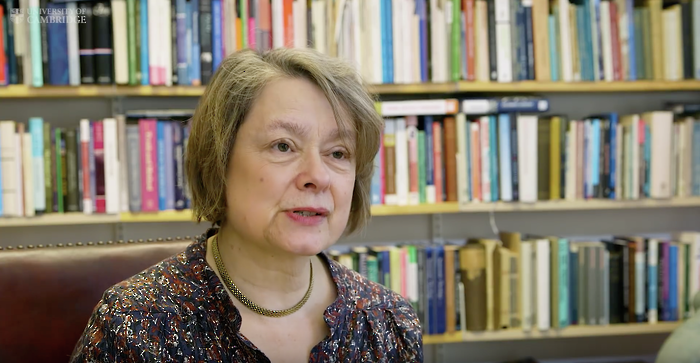Cambridge mathematician Caucher Birkar awarded Fields Medal
Professor Birkar, who fled to the UK as a Kurdish refugee in the early 2000s, has been awarded the so-called ‘Nobel Prize for mathematics’ for his work in birational geometry

University of Cambridge professor Caucher Birkar has been awarded the Fields Medal, widely regarded as the most prestigious prize in mathematics.
The algebraic geometer, who fled to the UK from Iran as a Kurdish refugee, was awarded the prize today at the International Congress of Mathematicians in Rio de Janeiro, alongside three other mathematicians working at Bonn, Zurich and Stanford.
Often described as the ‘Nobel Prize of mathematics’, the Fields Medal is awarded only every four years to a maximum of four eminent mathematicians, all of whom must be under the age of 40. As such, Birkar has been admitted to an elite cadre consisting of only 56 academics.
In an interview with Quanta Magazine, Birkar recounted having admired photographs of previous winners while studying for his undergraduate degree in Tehran. He said, “to go from the point that I didn’t imagine meeting these people to the point where someday I hold a medal myself — I just couldn’t imagine that this would come true.”
Birkar’s work in algebraic geometry at Cambridge has included much of the modern development of ideas in the field, in particular his proof on the boundedness of Fano varieties published in 2016, for which he was given the Fields Medal.
His citation for the prize also noted his pioneering work on minimal model theory.
Born on a small farm one year prior to the 1979 Islamic Revolution, Birkar began his pursuit of mathematics by studying maths textbooks from his local library, before taking up the subject at university.
He sought and obtained political asylum in the UK in the last year of his degree, citing the frequent violence in Iran against Kurds like himself.
After receiving his undergraduate degree from the University of Tehran, Birkar then worked at the University of Nottingham, where he began to explore birational geometry – then a comparatively stagnant field – with his mentor Vyacheslav Shokurov.
On the reasons behind his love of mathematics, Birkar remarked: “You get ideas from someone, somewhere, and you create something new... you contribute something new and create more beautiful things.”
 Music / The pipes are calling: the life of a Cambridge Organ Scholar25 April 2025
Music / The pipes are calling: the life of a Cambridge Organ Scholar25 April 2025 News / Candidates clash over Chancellorship25 April 2025
News / Candidates clash over Chancellorship25 April 2025 Interviews / Dr Ally Louks on going viral for all the wrong reasons25 April 2025
Interviews / Dr Ally Louks on going viral for all the wrong reasons25 April 2025 Comment / Cambridge builds up the housing crisis25 April 2025
Comment / Cambridge builds up the housing crisis25 April 2025 News / Cambridge professor paid over $1 million for FBI intel since 199125 April 2025
News / Cambridge professor paid over $1 million for FBI intel since 199125 April 2025






